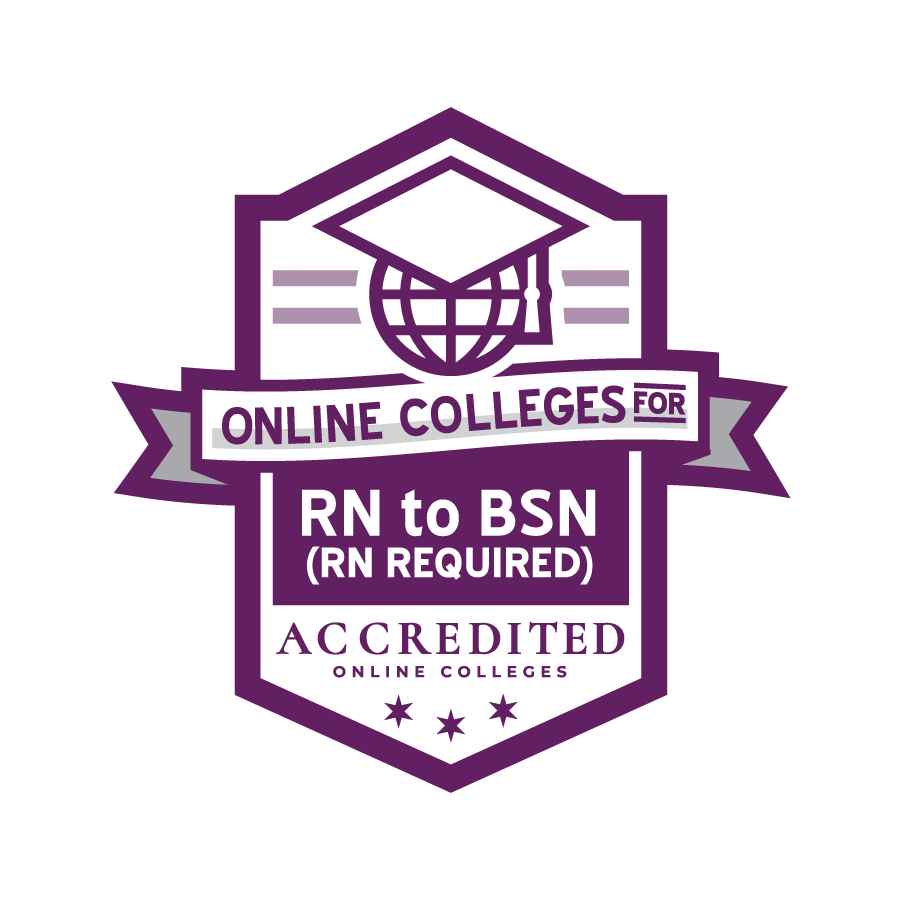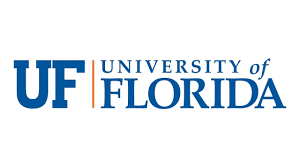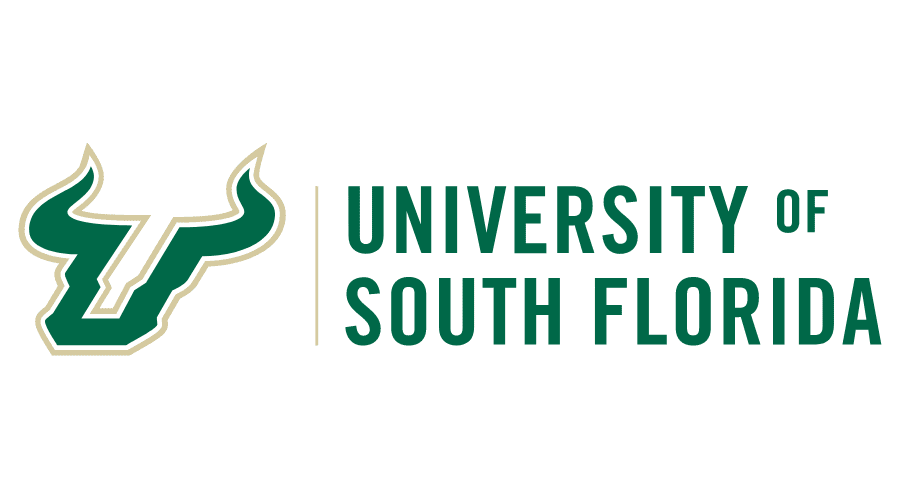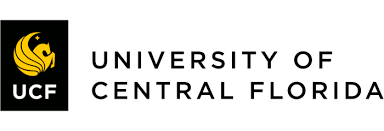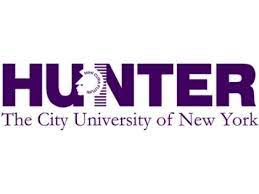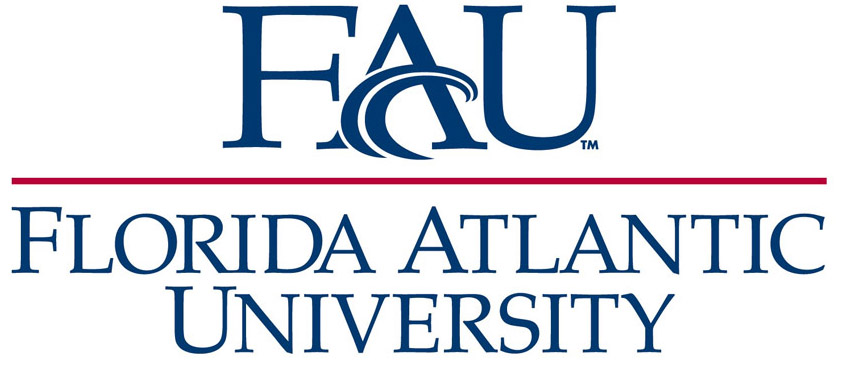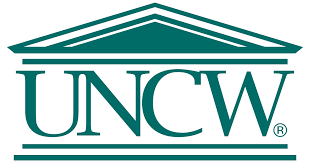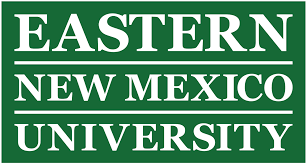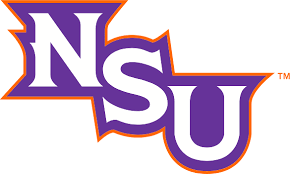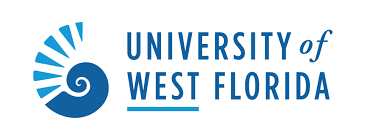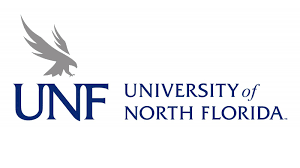More than 50% of nurses now have a bachelor’s degree in nursing. To stay competitive and gain access to new opportunities, check out the best accredited online colleges in RN to BSN.
As the general population and elderly population grows, there’s an increasing demand for nurses. The Bureau of Labor Statistics (BLS) predicts a 7% rise over the next decade, which represents around 221,900 new openings. However, employers are increasingly looking for graduates with a bachelor’s degree. If you hold an associate’s degree or diploma in nursing and RN licensure, consider the best accredited online colleges in RN to BSN for your bachelor’s degree.
What requirements are there for an RN to BSN program?
To be eligible to apply for an RN to BSN program, you’ll need unencumbered RN licensure and either an associate’s degree or approved diploma in nursing. Most Rn to BSN programs require you to have a minimum cumulative college GPA of 2.5 to 2.75 as a minimum too.
While you may already be working as an RN with these qualifications, there’s strong incentive to consider a bachelor’s degree. According to the University of Florida’s website, just over half of RNs now have a bachelor’s degree. What’s more, according to the Bureau of Labor Statistics (BLS), there are more than 3 million RNs in the nation. It’s never been more important to pursue your bachelor’s degree and remain competitive.
See Also: 30 Top Nationally Accredited Online Colleges For Nursing
What are the Best RN to BSN Degrees?
Accredited Online College uses the most recent data from the Department of Education’s National Center for Education Statistics. Each program is scored individually. It’s then compared to all other universities offering that degree to determine the final score you see by each ranking. Accredited Online College considers the affordability, student-to-faculty ratio, and the number of programs offered on-campus and online. To learn more, visit our methodology page.
#1. University of Florida
The University of Florida offers a Bachelor of Science in Nursing via UF Online, their distance learning campus. Designed for practicing RNs, you’ll be able to complete all of your coursework online in a program that is approved by the Florida Board of Nursing and accredited by the Commission on Collegiate Nursing Education (CCNE).
All coursework can be completed online via the university’s distance learning system. You’ll follow the same curriculum and benefit from the same faculty as your on-campus cohort, but you’ll have a schedule that allows greater flexibility to continue working in your existing role.
In this program, you’ll complete a range of courses, including two that have clinical components. However, these requirements could be met online without the need for commuting. Your tuition will cost around $129.18 per credit hour, including fees, which is why UF Online is ranked as the No. 1 most affordable online college.
#2. Florida International University
Florida International University offers a fully online Bachelor of Science in Nursing that’s only available to Licensed Registered Nurses. It was named the No. 8 online RN to BSN program in the nation in 2020. Comprising 120 credits, the program includes coursework that is tailored toward your workplace experience.
You’ll study the same core courses as your nursing cohort, including those such as:
- Health Assessment & Promotion
- Psychosocial Nursing
- Adult Physiological Nursing
You’ll also complete electives, human anatomy and lab, microbiology and lab, and other core subjects, in addition to a 30-credit clinical assessment.
The program is accredited by CCNE and students can opt to start during any semester. For an accurate estimate of your undergraduate cost of attendance, use the university’s tuition calculator. As an approximate guide, you can expect to pay around $7,185.37 in tuition as an in-state student or around $10,697.17 as an out-of-state student.
#3. Santa Fe College
Santa Fe College offers an RN to BSN bachelor’s degree, though entry is limited to a specific subset of students. Namely, you must be a graduate of an accredited Associate of Science in Nursing (ASN) to apply. The program is accredited by the Commission on Collegiate Nursing Education (CCNE).
Courses within this program are structured into half-semester courses lasting for seven weeks. All students must achieve a minimum grade of ‘C’ on certain introductory courses to be allowed to continue on the program, and there are two courses with a clinical component, in addition to a foreign language requirement.
Residents of Florida can expect to pay undergraduate tuition at a rate of around $126.33 per credit, which comes to around $3,793.20 annually. For non-residents, the cost rises significantly to $12,864.90. There are also distance learning fees of $300.00, in addition to $400.00 for books and supplies. Check out the scholarships page for information on the numerous awards available for Santa Fe College students.
#4. Arizona State University
Arizona State University’s (ASU) Online Bachelor of Science in Nursing: RN to BSN comprises 10 total classes, with classes lasting for 7.5 weeks. The program favors practicing nurses who already hold an associate’s degree in nursing, as you’ll benefit from your existing academic as well as practical knowledge.
To be eligible, you’ll have to have earned your RN license or alternatively have passed the NCLEX exam. The National Council of State Boards of Nursing examination tests nursing school graduate competency. Alternatively, students already enrolled in an associate’s degree can apply for the RN to BSN program concurrently via the Concurrent Enrollment Program.
At Arizona State University, approximately 80% of students receive some form of financial aid. For the most accurate estimate of your cost of attendance, you should check out the university’s tuition calculator. You can expect to pay approximately $11,298 per year as a state resident or $11,484 as a non-resident.
#5. University of South Florida
The University of South Florida offers an RN to BSN degree program through USF Health’s College of Nursing. It’s a fully online program, with enrolled students offered the option of completing their coursework in either five part-time or three full-time semesters, though the program director’s approval is required.
Eligibility for the program requires you to have either a diploma or an associate’s degree in nursing from a regionally accredited college or university. You will also need to pass a background check, immunization screening, and drug screening. Once enrolled, you’ll follow a curriculum comprising 30 hours of coursework, with a choice of concentration in:
- Leadership/Management
- Patient/Staff Education
- Clinical Excellence
- Ambulatory Care
Typical undergraduate tuition is around $105.07 for Florida residents and $185.92-$211.19 for non-residents. However, as a nursing student, you’ll be expected to pay additional fees to account for training, criminal background checks, drug screening, and other supplies critical to your clinical experience and learning. You’ll receive a list of expenses that typically cost in the region of $1,000-$2,500.
#6. Western Carolina University
Western Carolina University offers an Online RN to BSN Program that enhances key competencies required by practicing nurses. The program is fully accredited by the Commission on Collegiate Nursing Education and has been approved by the North Carolina Board of Nursing. Students could earn their degree in as few as four semesters.
This is a fully online program, and all coursework can be completed via distance learning. During the course of your studies, you’ll complete 24 hours of core RN to BSN courses, in addition to 6 hours of online electives, totaling 30 credit hours. There are two start dates available in either January or August.
The estimated total cost of attendance (COA) for the RN to BSN program is around $3,500, which includes around $2,500 tuition. The remainder of your costs are made up of an application, graduation, and other fees, and you’ll also pay around $400 to $600 for course books.
#7. Appalachian State University
You can earn your RN to BSN degree at Appalachian State University in a program that’s offered online. Comprising 30 credit hours taught by Appalachian and available part-time, you’ll need to have successfully graduated from an Associate in Applied Science or other associate degree in Nursing to be eligible. You’ll also need to hold a current RN license and have a minimum cumulative GPA of 2.5 from your prior college coursework.
The program will last a year, and you can complete all of your coursework online. You’ll also complete non-traditional clinical requirements, which comprise either class projects or research projects; this means that there’s no need to commute to campus or elsewhere during your studies.
Typical undergraduate tuition for a North Carolina resident comes to around $2,121.00 or $3,975.00 including all fees. For a non-resident, tuition costs around $9,924.50 or $11,778.50 including all fees. More information on tuition and a detailed explanation of other fees and charges can be found on the website.
#8. University of Central Florida
The University of Central Florida offers an Online BS in Nursing via UCF Online. It has been named as one of the Best Online Programs for 2021 according to U.S. News & World Report and could lead to careers such as:
- nurse
- ER nurse
- nurse consultant
- leader
This post-licensure program awards up to 29 credits for past college study providing that you have a minimum GPA of 2.8 and no lower than 2.0 in any individual course. While enrolled, you could also get a head start on your master’s degree by completing a maximum of 9 credit hours of graduate coursework.
For state residents, tuition is affordable at just $179.19 per credit hour. For non-residents, the cost rises to around $715.80 per credit hour. Interested students should check out the UCF Online page on scholarships. After submitting an application, you could be considered for more than 200 scholarships to help cover the cost of your degree.
#9. CUNY Hunter College
CUNY Hunter College offers an RN to BSN Nursing program that is fully accredited by the Commission on Collegiate Nursing Education. Designed for students who already hold an associate degree in nursing and a NY State RN license, the program curriculum is split into two components: professional nursing courses and liberal arts and general education courses.
However, students admitted into the nursing program are exempt from the university’s usual foreign language requirement. Admission requirements are a little stricter, with students requiring a minimum cumulative GPA of at least 3.2 to be considered for admission into the program.
Undergraduate tuition for a New York State resident typically costs around $6,930 for full-time students or $305 per credit hour for part-time study. For non-residents, this rises to around $18,600 full-time or $620 per credit hour part-time. The good news is that the in-state rate is available to non-residents who currently live in NY State and can produce proof of residency.
#10. Florida Atlantic University
Florida Atlantic University’s offers three modes of entry into the RN to BSN Track. These are the Freshman Direct Admit, Accelerated BSN, and RN-BSN entry types. Students interested in the program should’ve already completed a diploma or associate’s degree in nursing and possess an RN license in their state of residence.
While the program is offered online, there’s a requirement to fulfill a minimum number of clinical experience hours. The university will work with you to arrange clinical site locations close to home wherever possible, which could reduce the need for any long commuting journeys.
The estimated tuition for undergraduate students at Florida Atlantic University is around $203.29 for Florida residents and around $721.84 for non-residents. As your cost of attendance can vary based on your program, you can check out the Net Price Calculator for more accurate estimates.
#11. Indiana University-Purdue University-Indianapolis
Taught under the School of Nursing, this RN to BSN Online Degree Completion Option comprises 33 credit hours. Students could complete the program in as few as 12 months; alternatively, you could take 2 years to complete the program through flexible, part-time study. Upon graduating, you’ll be awarded a Bachelor of Science in Nursing.
Courses are taught in 6 or 8-week modules, and your clinical experiences can be arranged so that you complete them at your existing place of employment in many cases. Past students have also rated the program with a 92% satisfaction rate, in addition to there being a 92% retention rate for enrolled students. It’s easy to see why this has been rated the No. 2 best RN to BSN program in Indiana.
This program requires the completion of 120 credit hours to graduate, but students could transfer up to three-quarters of their credits from prior college education. Tuition is charged at a rate of $350 per credit hour for residents of Indiana or $455 for non-residents.
#12. East Carolina University
Designed for working nurses, East Carolina University’s (ECU) RN to BSN program is structured into four semesters and is available entirely online. You could obtain your degree in as little as 16 months from a program that is nationally ranked and offers personalized curriculum experiences.
You’ll take courses such as:
- Professional Communication in Nursing
- Critical Thinking to Facilitate Role Transition
- Nursing Leadership and Finance
During fall and spring semesters, courses run for 7 weeks, while in the summer, they’re structured into 5.5-week blocks. Your clinical experiences can be arranged to take place in your local community too.
ECU regularly features in national rankings for its low=cost tuition and high-quality teaching. The approximate cost for this program can be worked out by multiplying the undergraduate distance-learning tuition rates by the credit hours in the nursing program (33). However, with transfer credits, the program could cost as little as $5,491.
#13. University of Memphis
The University of Memphis Loewenberg College of Nursing (LCON) offers a B.S. in Nursing that’s available exclusively to licensed RNs. It’s a fully online program with no required campus visits; in total, you’ll complete a minimum of 120 credit hours via online coursework.
College level courses that you’ve completed previously can be used to help meet the credit requirements of this program. Upon graduating from the degree, you’ll also be encouraged to take part in the LCON Convocation ceremony, a celebration of both the graduating class and the nursing profession’s traditions and history.
UofM Global undergraduates who are residents of Tennessee pay a tuition rate of around $413.00 per credit hour. This is capped at around $4,956.00 for full-time study of 12 to 18 credits per semester. For non-residents, you’ll pay around $573.00 per credit hour; non-resident tuition is not capped.
#14. University of North Carolina-Wilmington
The University of North Carolina Wilmington offers an RN to BSN Online Degree Program that can be completed in as few as 12 months. Under the UNCW School of Nursing, you’ll complete around 29 program credit hours and engage in coursework that covers gerontological nursing, community health, professional practice, and more.
Hopeful students will need a minimum cumulative GPA of 2.5 on all transferable college courses combined. You’ll need at least 24 credits of transferable coursework, which should include 6 credits from college-level English courses. You’ll also need to have graduated from an associate’s degree or diploma in registered nursing and have an unencumbered license to practice as an RN.
North Carolina residents pay the lowest tuition, which comes to around $4,906.22 annually including fees. That’s around $169.18 per credit hour. Non-residents pay around $18,686.15 annually, which is around $644.35 per credit hour. Depending on your past study, some additional courses may be required, which could increase the amount of tuition due.
#15. Winston-Salem State University
Winston-Salem State University (WSSU) offers a fully online RN to BSN program that could see you becoming one of the next leaders in nursing in as little as a year. According to RegisteredNursing.org, it is the No. 1 RN to BSN program in the nation, and it has also been ranked for its affordability.
As a working RN, you’ll appreciate knowing that this program has been designed by nurses for nurses, ensuring a program that’s not only tailored to your profession, but flexible too. It’s no wonder that this has also been named one of the top 10 nursing schools in the region.
State residents and non-residents pay a reduced rate of tuition and fees compared to campus-based learners. Tuition and fees for an in-state student come to around $1,775.00 per semester, while non-resident undergraduates pay around $6,967.70. Fees include an educational and technology fee, in addition to a student association and government fee.
#16. Stony Brook University
Stony Brook University’s Registered Nurse Baccalaureate Program is an online, distance education degree, though it does have some site-based requirements. The university will work with you to identify suitable clinical placements, though the chosen site may not always be close to home, so this should be factored into your schedule.
You’ll complete 60 credits of upper-division coursework, with study in areas such as:
- anatomy and physiology
- statistics, humanities
- global issues
- microbiology
Your will also take clinical nursing courses. For admission into the program, you’ll also need a minimum cumulative GPA of 2.5 from at least 60 college credits from prior study. These courses must have been passed with a grade ‘C’ or higher.
According to the university’s website, undergraduate tuition at SUNY is around 15% lower than the U.S. average for public institutions and 50% lower than for-profit colleges and universities. New York State residents pay tuition of around $295.00 per credit hour, which is around $6,904.65 for 12 credits and including all fees. Non-residents pay around $1,041.00 per credit hour, which is around $15,864.65 for 12 credits, including fees.
#17. Eastern New Mexico University
Eastern New Mexico University offers a Bachelor of Science in Nursing, BSN Completion Program. For admission into the program, you’ll need to have an RN license. It’s accredited by the Accreditation Commission for Education in Nursing (ACEN) and offers 8 week courses, which should allow you to finish your degree in as few as 16 months.
In this program, you’ll study courses such as:
- Global Health Care
- Economics and Nursing
- Health Assessment
- Integrative Care Concepts
- Cultural Competencies for Nurses
Upon graduating from the program, you’ll also have the option to become a member of Sigma Theta Tau, an honors society for nurses.
For residents of New Mexico, undergraduate programs attract a tuition and fee rate of around $3,264 per semester. This comprises $2,037 in tuition and $1,227 in fees. Non-residents pay around $4,284 per semester, as tuition is charged at around $3,057.
#18. Oklahoma State University
Under the College of Education and Human Sciences at OSU, students can enroll in an RN to BSN online completion program. The program is accredited by the Commission on Collegiate Nursing Education (CCNE) and is fully online. Evidence-based practice underpins the curriculum, which means you won’t have to attend campus or other sites for clinical experiences.
With this program, you could complete your degree in around 9 to 12 months of full-time study. Delivered through Canvas, the university’s e-learning system, as a full-time student, you will complete 2 or 3 courses every 8 weeks. As a part-time student, you’ll complete 1 course every 8 weeks.
Undergraduates may pay tuition following a block rate structure. This means that as a full-time student taking 12 to 18 credits per semester, you’ll be charged the same rate regardless of your precise course load. Residents pay $420.35 per credit hour or $6,305.25 per semester, while non-residents pay $937.70 per credit hour or $14,065.50 per semester.
#19. Northwestern State University of Louisiana
Northwestern State University of Louisiana offers an RN to BSN in Nursing that involves fully online study. All of the required nursing courses and general education courses can be completed online. Enrolled students will be able to meet their course objectives and clinical practice within their own community.
In total, you will complete 30 hours of required core nursing courses in this program that is accredited by the Commission on Collegiate Nursing Education. For admission into the program, you will need to have already completed an associate degree or diploma in nursing.
As an eligible RN, you will pay an undergraduate tuition rate of around $6,750, which includes all fees and covers the 30 hours required for your nursing courses only. Tuition for general education courses within this program is set at around $225 per credit hour for any additional courses required.
#20. Eastern Florida State College
At Eastern Florida State College, registered RNs and graduates of an associate’s degree or diploma in nursing can earn their BSN degree entirely online. According to the nursing resource website, RNtoMSN, this program is one of the most affordable RN to BSN programs you can find online.
The curriculum builds upon academic and practical knowledge already acquired to allow you to expand your skills and open up leadership opportunities. Alternatively, as a graduate of this program, you could pursue further study at the master’s level. Courses are varied; a full curriculum for the program can be found here.
Tuition rates at Eastern Florida State College are lower than average for both residents and non-residents. Out-of-state students pay around $508.92 per credit hour, while state residents pay around $128.51. Other fees may apply, and you can find more information on fees and scholarships on the university’s website.
#21. SUNY Delhi
SUNY Delhi’s RN to BSN program is structured into 7-week terms, and all coursework can be completed online. There are 5 start dates available throughout the year, and you can choose to enroll either part-time or full-time. For admission, you’ll need an RN license and a minimum GPA of 2.6 from an accredited associate degree in nursing.
The National League for Nursing (NLN) has named this program as a Center of Excellence in Nursing Education. Benefits of the program include the ability to earn college credits for prior work experience and the opportunity to learn using innovative technologies, such as a virtual clinical simulation for practical experience.
At SUNY Delhi, you’ll pay the same rate of undergraduate tuition that is charged to traditional, campus-based students, and you’ll also be taught by the same faculty. State residents pay tuition of around $295.00, while out-of-state students pay around $353.00. Some fees also apply to both groups of students.
#22. University of West Florida
The RN to BSN Online program at the University of West Florida can see you earning your nursing degree in as little as a year. Comprising around 32 credit hours and structured into 8-week courses, you’ll build on your existing knowledge in a program that is accredited by the CCNE.
Your faculty will include instructors who have many years’ worth of experience in many key areas of the curriculum. As you complete your courses, you will touch on topics that include:
- patient assessment
- evidence-based nursing practice
- health promotion
- disease prevention
- nursing strategies for the elderly
Tuition at the University of West Florida is affordable compared to other institutions in the nation. On average, undergraduates will pay around $6,860 for a bachelor’s degree. The average tuition for public and private colleges in Florida is around $13,800, so you could earn your BSN degree for just half the cost.
#23. Purdue University Northwest
Purdue University Northwest (PNW) offers an RN to BSN program that accepts up to 86 transfer credits, which constitutes around 70% of the final value of the program. This could see you complete your degree in as few as 16 months for less than $11,000. The program is accredited by the Accreditation Commission for Education in Nursing (ACEN).
Like SUNY Delhi, this institution has been designated as a National League for Nursing Center of Excellence. All your coursework is available fully online, and what’s more, you can complete your capstone experience at your place of work. Courses are structured into a flexible 5-week block format.
Each credit hour on the RN to BSN program costs around $378.01, making the cost of a 3-credit course around $1,134.03. Based on a course load of 34 credits, that’s around $12,852.34 in tuition. Should you choose to continue to a master’s degree, tuition is around $474.46 per credit hour.
#24. Wichita State University
With Wichita State University’s RN to BSN program, you could earn your bachelor’s degree in as few as 3 semesters. All courses in this program are available via distance learning, and you could earn up to 30 credit hours for prior college coursework. You’ll also hone your leadership skills for future management positions in nursing.
The curriculum has been built upon applied learning, ensuring that every course incorporates this or research experience at its core. Completing up to 35 credit hours, you will complete courses such as:
- Health Assessment for the Practicing RN
- Foundations of Nursing Leadership
- Care of Populations
- Healthcare Leadership
Undergraduate tuition for state residents runs at a rate of around $228.09 for both campus-based and online students. While non-residents pay around $540.27 for traditional programs, online tuition for non-residents is charged at the same, reduced rate of around $228.09. There are a number of mandatory fees that also apply.
#25. University of North Florida
The University of North Florida (UNF) Undergraduate RN-BSN Bridge Track is designed for RNs who want to expand their academic and clinical knowledge with a bachelor’s degree. As an online program, it’s available to working professionals from across the nation who hold an RN license in their state.
Your curriculum will have a strong foundation in the sciences with numerous opportunities to work with patients directly. This involves working with both the vulnerable and under-served groups. In this program, you will be completing courses with the Quality Matters (QM) certification, which means that the teachings have met stringent standards for their quality and accuracy.
Typical undergraduate tuition is charged at around $105.07 for both residents and non-residents. However, tuition for this bridge track differs from the standard tuition rate charged to both residents and non-residents. You’ll find more information on undergraduate tuition and a complete breakdown of all mandatory fees on the university’s website.
#26. Thomas Edison State University
Thomas Edison State University’s RN to BSN program is unique in offering rolling admissions throughout the year. This means that you can enroll and begin your program on any day throughout the calendar year. Classes are structured into 8-week sessions, with 4 one-week breaks every year.
In the RN to BSN program, you’ll need a minimum of 120 credits to graduate, which includes 12 graduate credits you can use toward a Master of Science in Nursing. There is in fact a RN to BSN/MSN program that allows you to earn both degrees with additional preparation as a:
- Nurse Administrator
- Nurse Educator
- Nursing Informatics Specialist
Tuition for the RN to BSN program at Thomas Edison State University is charged at a rate of $450 per credit for New Jersey residents. For out-of-state students, this rises to around $550 per credit. Lower level TECEP exams cost around $50, while upper level examinations are around $75.
#27. Keiser University-Ft Lauderdale
Keiser University, Ft Lauderdale offers an RN to BSN program across multiple Florida campuses. This degree completion program combines health promotion, physical assessment, research, and management and leadership with other key skills like critical thinking. The curriculum takes a cultural, economic, political, and social approach to health care and patient management.
Students can complete the curriculum in as few as 12 months with transfer credits from prior college study. You’ll need to hold either an associate’s degree in nursing or a nursing diploma to be eligible for admission. You’ll also need to prove your existing, non-restricted licensure as an RN in the U.S.
Typical undergraduate tuition at Keiser University is around $19,008, though online students may pay less than traditional students. The university provides a net price calculator that can be used to get the most accurate estimate of your cost of attendance.
#28. The College at Brockport – Suny
SUNY Brockport offers the Nursing RN to BSN Fast-Track program for adult learners with RN licensure in New York State. To apply, you’ll also need an associate’s degree with a major in nursing. The program is offered entirely online, with clinical experiences that can be completed in local communities for your convenience.
In total, you’ll typically complete around 30-36 credits in order to graduate, with many students completing their degree in 12 months full-time or around 18-24 months part-time. Required courses include subjects such as:
- Health Assessment
- Community Based Epidemiology
- Pharmacotherapeutics for the RN
Around half of graduates report success finding nursing leadership roles within a year of graduation.
Undergraduate tuition is charged at around $7,070 for in-state students, in addition to around $1,656 in fees. For out-of-state students, tuition costs around $17,180, in addition to fees of around $1,656. Graduate tuition costs between $11,540 and $23,560 annually should you choose to pursue your master’s degree at SUNY Brockport.
#29. Winona State University
Graduates of an associate’s degree or diploma in nursing may apply to this RN to BSN program at Winona State University, which has mandatory clinical experiences. Students will complete more than one placement with community partners, which could be located within:
- public health departments
- schools
- other community health agencies
Admissions require you to hold a current RN license and the aforementioned college-level qualification, for which you should have achieved a minimum GPA of 2.75. You may choose a full-time program of study lasting for 1 year or enroll part-time over a period of 1.5, 2, 3, or 4 years.
Undergraduate students enrolled in a full-time program of study, comprising 12 to 18 credit hours per semester, pay tuition of between $3,799.16-$6,848.66 for the Fall semester and $3,913.13-$7,054.12 for the Spring semester. There are also other mandatory fees. Check your exact tuition schedule, which depends on residency.
#30. SUNY Polytechnic Institute
The Associate Degree to Bachelor’s Degree in Nursing program at SUNY Polytechnic Institute is offered on both a full-time and part-time basis. All coursework is available online via the university’s Blackboard LMS (Learning Management System). There’s also a health assessment course with a lab-based component, which is also available to complete remotely.
Admission is offered during the Fall and Spring semesters, with the curriculum involving coursework in areas such as:
- professional nursing practice
- health assessment
- research
- leadership
- public health
There’s also a strong foundation in the arts and sciences, which will help you to develop personally and professionally alongside your nursing skills development.
Students enrolled in this program on a full-time basis, studying 12 or more credits per semester, will pay tuition of around $3,535 as a New York State resident. Students from out of state will pay tuition of around $4,240. Part-time study is charged at a rate of $295 to $353 per credit hour depending on residency.
Frequently Asked Questions
Do RNs go to medical school?
Nurses aren’t required to attend medical school before gaining their professional licensure. In terms of academia, a 2-year degree program is sufficient for employers. However, RNs do need to pass a licensing examination before practicing with patients. Some employers such as hospitals will often ask for a bachelor’s degree as a minimum level of education.
What is an RN to BSN program?
RN stands for Registered Nurse, while BSN stands for Bachelor of Science in Nursing. So, an RN to BSN program is an academic bridge that allows registered nurses to obtain a bachelor’s degree in nursing. Employers are increasingly looking for qualified nurses with a baccalaureate degree, and completing your BSN could be a good way to future-proof your career.
You can become a registered nurse by completing an associate’s degree in nursing or an approved nursing diploma. Since associate’s degrees typically last for two years, these options are often more appealing to students who want to get their qualification more quickly or pay less in tuition.
However, with more than half of RNs now having a bachelor’s degree, competition for roles is growing. This is why many colleges and universities now offer RN to BSN programs. You can obtain your bachelor’s degree in as few as 12 months by transferring prior college credits and studying for your bachelor’s degree with a part-time or full-time commitment.
How much do RNs make?
According to the Bureau of Labor Statistics (BLS), the median annual salary for an RN in May 2020 was around $75,330. However, the lowest 10% of earners made lower than $53,410 and the upper 10% of earners made more than $116,230 each year.
According to the same data from the BLS, the highest earners were working in government agencies, while mid-range salaries were paid for those in hospitals and ambulatory healthcare services. The lowest groups of earners tended to be stationed within nursing facilities and educational services.
When deciding upon a nursing role, salary may be just one factor that you want to consider. Nurses in hospitals and other care facilities are often expected to work shifts, which may mean working unsociable hours. You could be working through the night, on weekends, and on holidays.
What can I do with a nursing degree?
With a Bachelor of Science in Nursing, patient care is just one of the options available to you. Some nurses decide that their skills are better aligned with roles outside of direct patient contact, and there are many other roles that you can consider with a BSN under your belt.
Many graduates choose to become a nurse educator, which involves teaching other nursing staff within a classroom or clinical environment. You’ll need a wealth of clinical experience, strong communication skills, and a personable attitude. However, bear in mind that this role commonly requires a master’s degree in nursing (MSN).
Nursing management and leadership roles are also popular for RNs who have chosen to move away from patient care. This could include:
- working as a nurse manager
- nurse administrator
- healthcare manager for example
In some cases, graduates choose to pursue a master’s degree for such roles, though it’s not always strictly required.
Can I take an online RN to BSN without clinicals?
The appeal of an online RN to BSN program is typically that it doesn’t require a commute to campus. If you’ve got a busy working schedule or are commonly on-call at short notice, then you might not have the time to commit to a lengthy commute or fixed classroom hours. Fortunately, many degrees offer asynchronous learning so that you can study at your own pace.
However, what about the clinical requirements; how do you avoid the need to commute to a clinical site? Some degree programs do require you to commute to a placement site that’s determined by the university. In other cases, your university will endeavour to arrange clinical placements close to home. Finally, there are many programs – several on this list in fact – that allow you to meet your clinical requirements online.
If you’re interested in pursuing higher education, then you should check out Best Online Bachelors In Nursing Degree Programs and Best Online Bachelor’s in Nursing and Healthcare!

